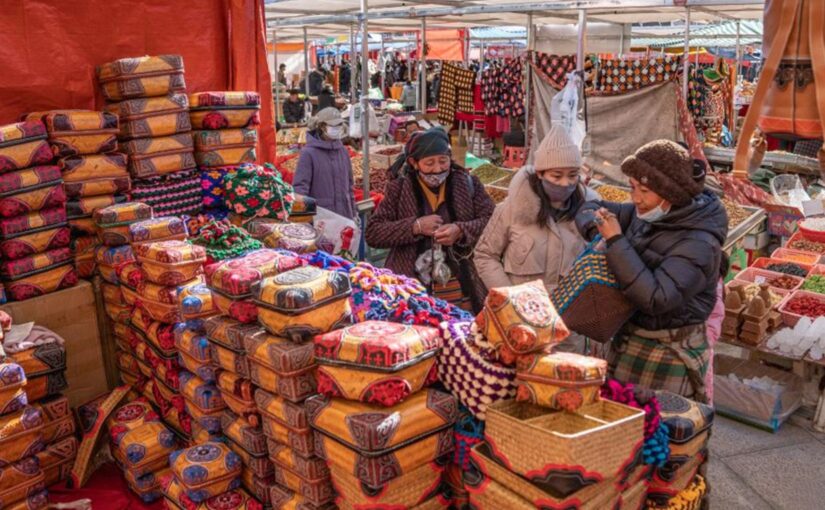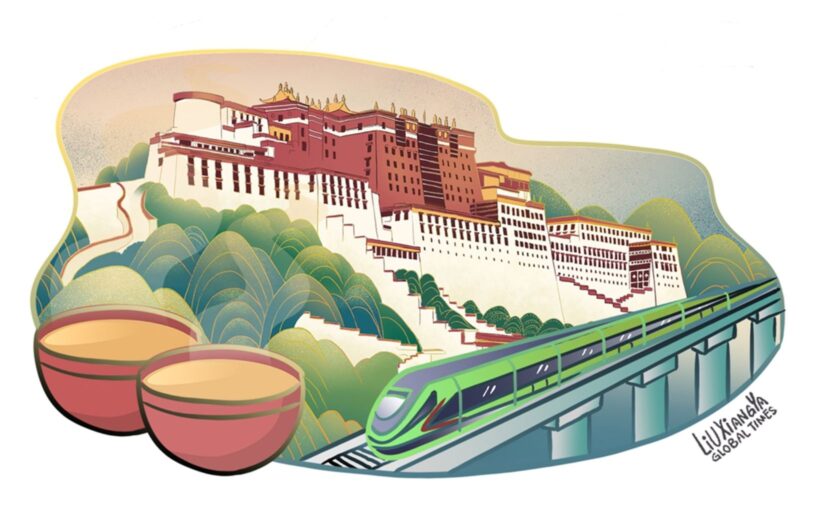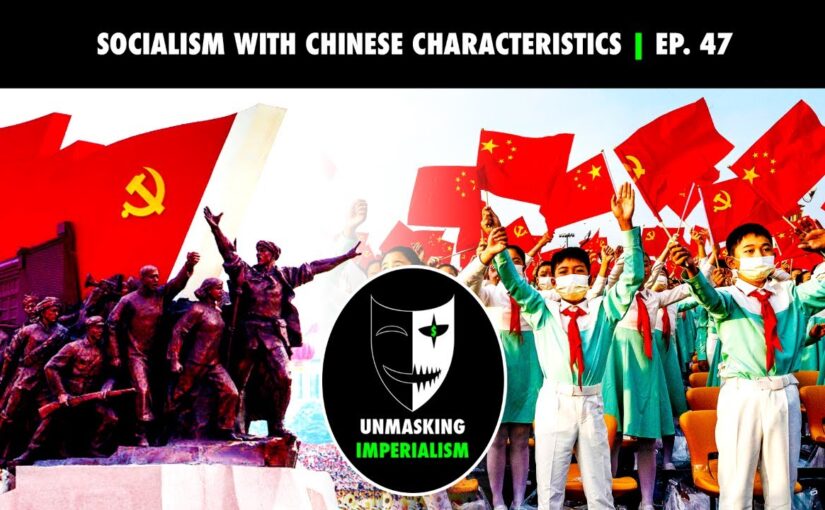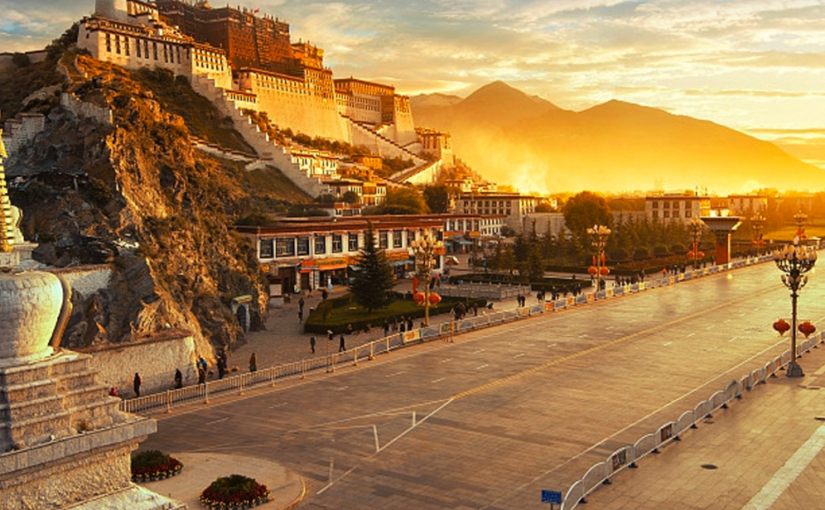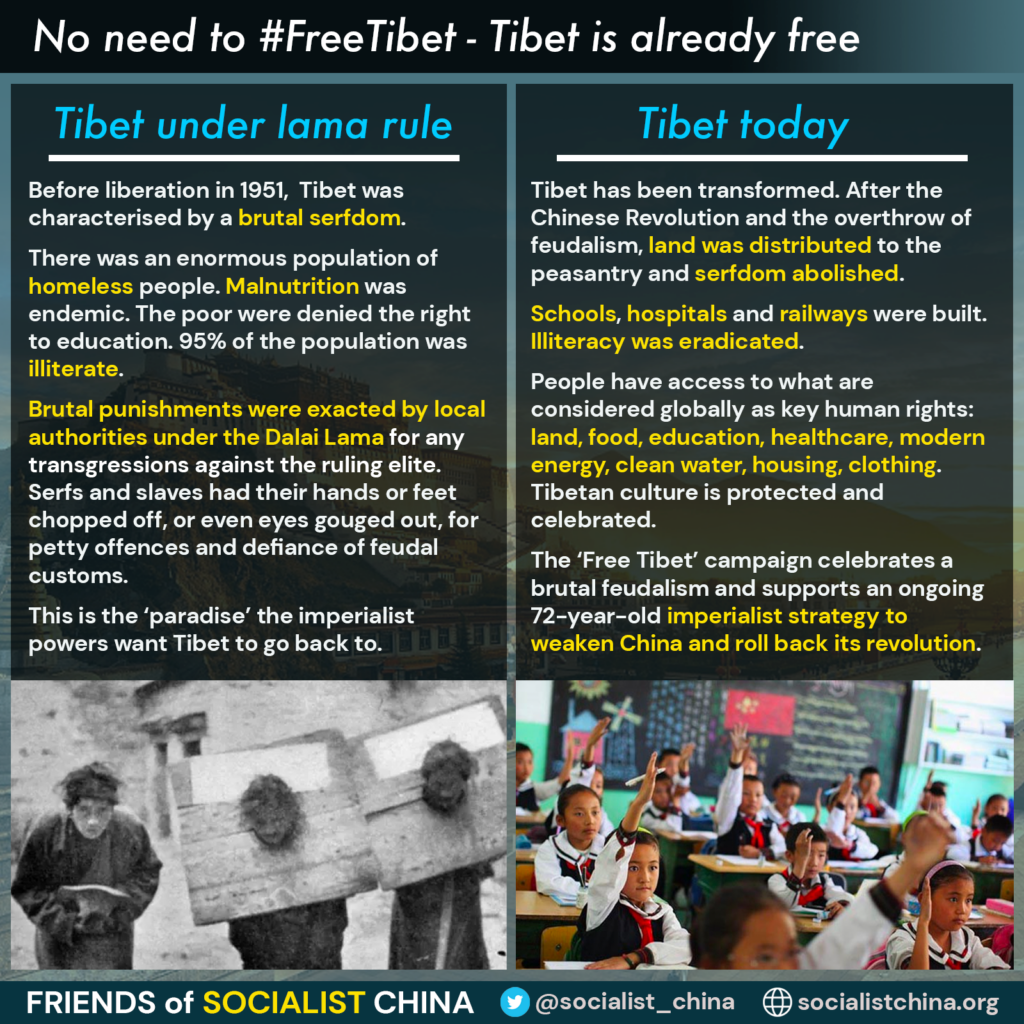The following article by Arnold August, originally published on CGTN, details Arnold’s 2023 tour of Xizang/Tibet, and contrasts the situation today – with extreme poverty having been eliminated and cutting edge infrastructure helping to solve some of the development problems presented by the province’s vast and rugged terrain – with that prevailing under the serf system in place until the late 1950s.
Arnold writes: “Under the thumb of a feudal theocracy, about 5 percent of the population of Xizang were serf-owners, while at least 95 percent were serfs. I can never forget the images of a grandmother, mother and small child who were born in the cowshed of a serf-owner, where they lived. This was the fourth generation to endure these conditions.”
Not everybody was happy with the dismantling of serfdom and the liberation of the masses. Some “opposed democratic reforms and, on March 10, 1959, along with the Dalai Lama, organised a US-led armed revolt. The insurrection was ultimately defeated, causing the Dalai Lama and his close followers to retreat to India.”
Such are the roots of the so-called Free Tibet movement, backed to the hilt (always with money and propaganda support, and at times with weapons) by the CIA. This is a movement for freedom of the oppressors and for the destabilisation and undermining of People’s China.
Arnold August is the author of five books on international issues and is on the editorial board of the International Manifesto Group.
Some argue that 73 years ago today, in 1951, Xizang experienced a historic leap in its social system with its peaceful liberation. But is the term “historic leap” an exaggeration? To address this, we need to consider the conditions from which Xizang emerged.
As a participant in a tour of Xizang in 2023, I had access to Xizang’s historical film footage. The evidence, based on video and still photographs, captures the reality of ancient Xizang’s serfdom before 1951. The scenes, narratives and interviews then fast-forward through the years leading to 1959 to 1960, when democratic reforms began in earnest. During the tour, these visuals were supplemented by on-the-spot discussions with people in Xizang, who provided additional information and figures.
What are the facts? Consider a stark reality typical of the centuries before that watershed year of 1951, when, under the thumb of a feudal theocracy, about 5 percent of the population of Xizang were serf-owners, while at least 95 percent were serfs. I can never forget the images of a grandmother, mother and small child who were born in the cowshed of a serf-owner, where they lived. This was the fourth generation to endure these conditions.
Many commentators focus on the post-1959 reforms, but other data are crucial. From 1950, even before the formal declaration of peaceful liberation in 1951, the People’s Liberation Army (PLA) was building infrastructure. Most notably, the 1,947-kilometer highway between Xining, the capital of neighboring Qinghai Province, and Lhasa, was completed in 1954, replacing travel by foot or yak. By April 1956, a total of 4,300-km railway lines had been built.
So instead of a three-hour flight from Xining to Lhasa, our hosts planned a train trip for our 2023 tour. The 22-hour journey across the Qinghai-Tibet Plateau allowed us to see firsthand how the vast, rugged, high-altitude, cold region is one of the enormous challenges to Xizang’s modernization.
Despite such achievements as the rapid development of transportation infrastructure and the abolition of serfdom on March 28, 1959, some in the Xizang’s ruling circles saw the writing on the wall and resisted change in order to maintain the serf system. They opposed democratic reforms and, on March 10, 1959, along with the Dalai Lama, organized a U.S.-led armed revolt. The insurrection was ultimately defeated, causing the Dalai Lama and his close followers to retreat to India.
While they abandoned the ship, China nevertheless surged forward. According to local people, the government involved close to 10 activist/advisors-committees by sending them to the grassroots more than 190,000 times. This took place from 2012 to 2020. Their task: flesh out the plan to eradicate extreme poverty. This goal was achieved in 2020, a marvel for Xizang.
The fundamental reasons for the “historic leap” in Xizang’s social system, which I believe to be true based on facts, may challenge the preconceived notions held by much of the West. China’s development since October 1, 1949, shows that, despite inevitable twists and turns, the government, together with the people at the grassroots, is fully committed to modernizing the country.
In the process, they are developing a new kind of socialism that is in line with China’s realities, reflects the will of the Chinese people, and meets the requirements of the times. From this altruistic perspective, it was only natural that Xizang should receive the same benefits. Why? Because historically, Xizang has always been part of China and has been under China’s administrative rule for nearly a thousand years.
The Lhasa high-tech zone innovation and entrepreneurship service platform is an excellent model of “socialism with Chinese characteristics.” This term, in the Chinese context, refers to the ongoing efforts of socialist nations to effectively balance the needs of the individual with those of the collective. As for the high-tech institute, our hosts explained that all the students require is to bring their computer and their ideas. Then, free of charge, the students are connected to the most advanced facilities to realize their concepts.
We were also given a brief introduction to their Chinese-English bilingual website. After the tour, I continued to explore the website. I learned that the requirements for admission to the program include adherence to the Constitution of the People’s Republic of China and support for the leadership of the CPC and the socialist system. Although membership in the CPC is not required for acceptance into the program, individuals who have been expelled from the CPC are not accepted.
Do these requirements conflict with individual initiative? To Westerners blinded by U.S.-centered prejudices against socialism, they may seem contradictory. But for the Chinese, these imperatives are normal because socialism with Chinese characteristics is deeply embedded in their values. This is not just a top-down approach; as seen in the high-tech center, everyone is part of the process.
